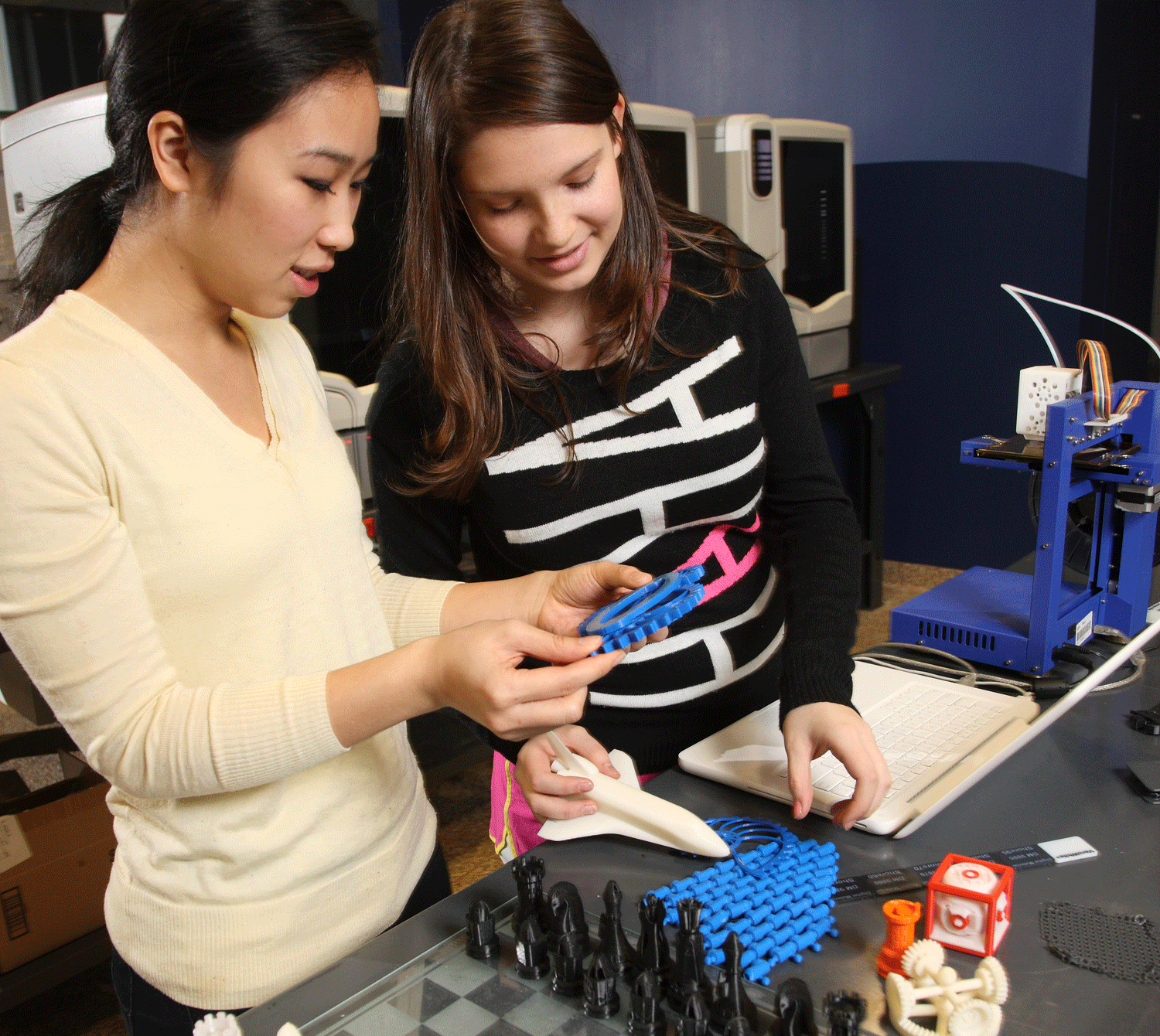The University of Virginia’s Curry School of Education and School of Engineering and Applied Science are collaborating with Charlottesville and Albemarle County public schools to establish the first U.S. Laboratory School for Advanced Manufacturing Technologies, backed by a $300,000 planning grant from Virginia Gov. Robert F. McDonnell.
Laboratory schools are model schools operated by a university in collaboration with a local school system.
The Virginia College/University Partnership Laboratory School Application Planning Grant will support design and implementation of the lab schools, which will be located in area public schools. The lab schools will provide training for students in science and engineering in preparation for high-tech jobs and will help prepare future teachers in the integration of engineering concepts into science education.
“This is a tremendous opportunity for partnership between the local school divisions and the University focused on a highly innovative project of great mutual benefit,” Robert Pianta, dean of the Curry School, said. “University students and faculty from Curry and Engineering will gain from the opportunities for their own professional training and research, while at the same time local students and educators will draw from the expertise of the University.
“This partnership has great potential not only to foster advanced technical training and career-pathway skills for local students interested in manufacturing, but as a proof of concept in education innovation that we hope to replicate and evaluate more broadly.”
Advanced manufacturing technologies for the laboratory school will be installed at Buford Middle School, Jack Jouett Middle School, Charlottesville High School and Albemarle High School. The sites will each be linked to each other and the University via a videoconferencing system.
The lab school will begin offering classes for the 2013-14 school year to eighth-graders, with around 500 eligible students at Buford and Jouett, and will expand by adding a new grade level each subsequent year, said Curry School professor Glen Bull, the co-principal investigator for this initiative with Engineering professor Hossein Haj-Hariri, chair of U.Va.’s Department of Mechanical and Aerospace Engineering.
Science classes will incorporate engineering design, Bull said. High school students will have the option to participate in an “Advanced Manufacturing” career track, earning dual-enrollment credit through Piedmont Virginia Community College.
U.Va. engineering and education students will collaborate with lab school science teachers to provide opportunities for students to learn science in a meaningful context, Bull said, as they use the latest 2D and 3D manufacturing technologies for rapid prototyping of their computer-aided designs.
“The University of Virginia has greatly advanced its capabilities and expertise in advanced manufacturing over the past several years,” Engineering School Dean James H. Aylor said. “Our Mechatronics Lab and our Rapid Prototyping Lab have provided our students with opportunities to design and produce devices quickly.”
Haj-Hariri, chair of U.Va.’s Department of Mechanical and Aerospace Engineering, said that today’s 3D printing technology is at a stage similar to the personal computer in the 1980s.
“Whereas there are a number of schools of engineering, or schools of education who are undertaking similar endeavors, U.Va.’s is the only activity that truly is a partnership between the schools of education and engineering,” he said. “Our undergraduates will be teamed up with school teachers in various introductory courses, and will have the ability to feed back into the science courses of K-12 and help improve the outcome.”
Charlottesville City Schools Superintendent Rosa Atkins expressed optimism about the collaboration’s potential. “This groundbreaking collaboration, in which students use advanced manufacturing technologies to address real-world engineering problems, will not only bridge the gap between theoretical and applied knowledge, it will also help meet the nation’s increasing need for scientifically, technologically, engineering and mathematically literate students.”
The collaboration will address the U.S. need for global technology competitiveness and President Obama’s challenge to prepare more U.S. citizens for high-tech jobs. It will also complement University and private partnerships such as the Commonwealth Center for Advanced Manufacturing, a collaborative research center located in the Rolls-Royce Crosspointe Center in Prince George County. The center brings global manufacturing companies together with researchers from U.Va., Virginia Tech and Virginia State University, along with its own expert engineers and scientists, to work together on challenges common to advanced manufacturing.
Construction on the lab school is slated to begin June 6 at Buford Middle School and will be complete for the beginning of school in August. All Buford students will have the opportunity to participate in the innovative science courses. Additional construction at Charlottesville High School is planned for 2014.
Multiple funding streams have supported this project. Past and current funding support has come from Charlottesville City Council, the National Science Foundation, the MacArthur Foundation, Motorola Solutions Foundation, the U.S. Department of Education, Microsoft and the Virginia Governor’s Office.
Media Contact
Article Information
March 1, 2013
/content/uva-local-schools-create-first-us-lab-school-advanced-manufacturing-technologies

